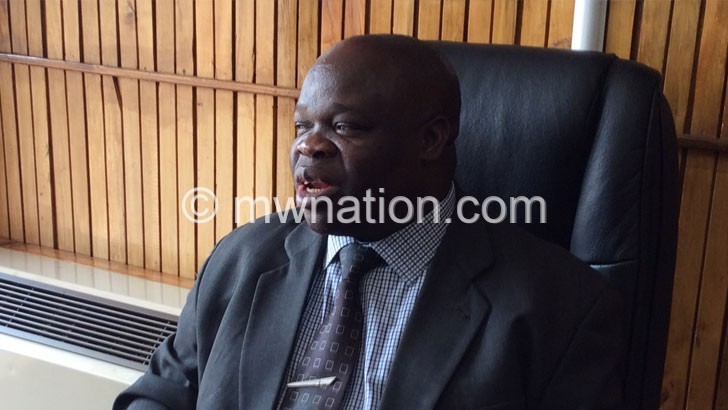Minister challenges Mera on quality service provision
Government has challenged Malawi Energy Regulatory Authority (Mera) to ensure that service stations and the Electricity Supply Corporation of Malawi (Escom) are offering high standard services to consumers.
Minister of Natural Resources, Energy and Mining Bintony Kutsaira said this on Tuesday during a two-hour closed door meeting with Mera executive board members at Mera offices in Lilongwe.
The minister said government is shocked that Mera’s stakeholders are not providing quality services to consumers, a development which, according to him, indicates that not much is being done to ensure that service providers are sticking to stipulated regulations.

For example, the minister said some filling stations have poor sanitary facilities which may pose a health hazard to consumers and that some have been turned into waste dumping sites.
On Escom, Kutsaira noted that the body is not meeting government expectations to connect 360 000 households to power annually. The expectation is line with provisions in Mera regulations.
Said the minister: “We have toured Egenco, Escom, Nocma and other service stations. We did not like what we found at some of the filling stations. We came to discuss how best we can avoid some of these things we found at filling stations.”
But in reaction to Kutsaira’s sentiments, Consumers Association of Malawi (Cama) executive director John Kapito said in a telephone interview that connecting 360 000 households is not a sustainable initiative considering that the country has been failing to generate enough power to meet the current demand.
Currently, only 12 percent of the country’s population has access to electricity.
Kapito noted that Malawi has been slow to adopt new technologies such as solar and coal generated power. As such he hinted it will be technically impossible for Escom to connect thousands of households each year.
On services provided at filling stations, Kapito said the association has been lodging complaints on the same but little is being done to improve the situation.
He said: “Let us be serious… People pay for power but the challenge is not about connectivity. The question is, are we able to [supply electricity]? We have limited capacity because the power being generated is satisfying very few people.
“We have also raised issues on filling stations that most of these have been turned into bus-stops and beer drinking places. Why can’t Mera just close these stations?”
Mera chief executive officer Collins Magalasi admitted there are a number of challenges the regulatory body will be working on to ensure Malawians are given quality services, including connecting power to people.
He said: “Mera licenced Escom and one of the key performance indicators is that it should connect 360 000 households each year. We are hopeful that there are ways for Escom to connect these households by June next year.”
Among the regulations is that a filling station should be located over 100 metres from hospitals and public places such as schools. They are also required to have clean and accessible sanitary facilities such as toilets.
Asked what action government will take on errant service stations, Kutsaira only said: “From now onwards, no one will be given a chance to construct a filling station close to a public facility”.
These challenges have been there for long, but Magalasi noted that some regulations are not adhered to because government institutions do not speak to each other on critical issues.





